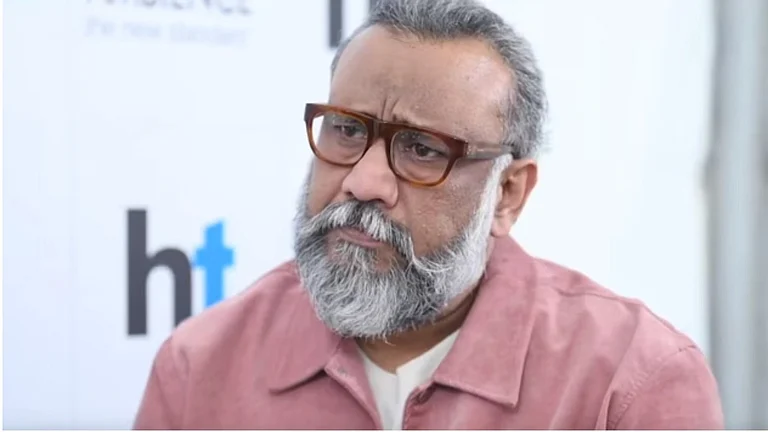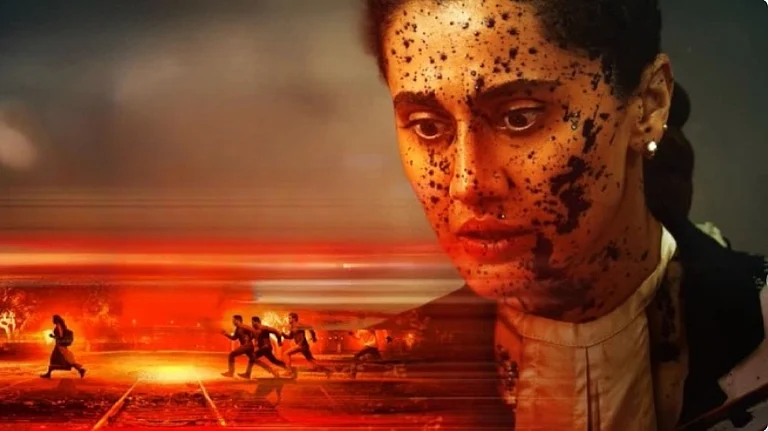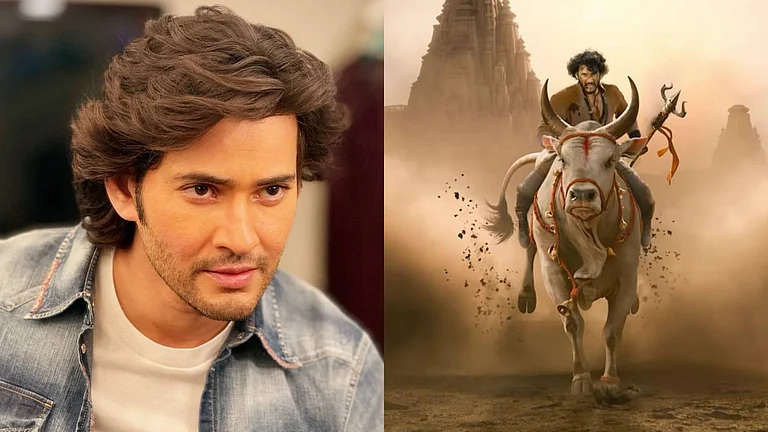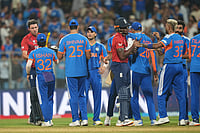
Summary of this article
Jatadhara is directed by Venkat Kalyan and Abhishek Jaiswal.
The film features Sudheer Babu (as Shiva), Sonakshi Sinha (in her Telugu debut as Dhan Pisachini), and Divya Khosla Kumar (as Sitara).
Shiva, a rationalist ghost-hunter who doesn’t believe in the supernatural, gets drawn into a hidden world of ancient rituals and a vengeful spirit called Dhan Pisachini.
Indian cinema’s renewed obsession with the supernatural has often produced works that flirt with myth while mining modern anxieties. Jatadhara (2025), directed by Venkat Kalyan and Abhishek Jaiswal, tries to walk that line between ritual and realism but is caught up in building grandeur over a sensible story. With Sudheer Babu in the lead and Sonakshi Sinha making her Telugu debut, Jatadhara arrives with promising transcendence but lands somewhere between confusion and exhaustion.
At the heart of it all is Shiva (Sudheer Babu), a man of logic who moonlights as a ghost hunter. By day, he works in a corporate setup; by night, he probes haunted houses for signs of the paranormal, only to disprove their existence. It’s a clever premise: a sceptic chasing ghosts to affirm his disbelief. Yet, before this idea can breathe, the narrative spins into an unconvincing love story, a recycled item song, and a trail of loosely strung supernatural sequences that seem written in separate rooms.
Haunted by recurring dreams of a child and a mysterious woman, Shiva soon discovers that his life is bound to the legend of Dhana Pisachini—a demoness who guards hidden wealth. Enter Sinha, playing the demoness with the kind of imperious presence that could have elevated the film, had the writing not turned her into a caricature. Her sharp eyes and commanding stillness suggest a more textured character beneath the loud make-up and hollow mysticism, but the direction keeps her locked in the confines of spectacle.
Babu brings conviction, and that’s perhaps the film’s saving grace. His physicality lends some gravitas to the role, particularly in the climactic Tandavam sequence, but his performance can’t outrun the script’s incoherence. The writing gives him little to build upon beyond confusion, revelation, and the occasional stare into the void. His dynamic with Divya Khosla Kumar’s character—a devout archaeologist who exists to challenge his logic—lacks warmth, rhythm, or any emotional incentive. Their relationship begins, peaks, and collapses in the span of two scenes.

The supporting ensemble barely registers. Shilpa Shirodkar, Ravi Prakash, and Srinivasa Avasarala are trapped in routine roles that neither entertain nor advance the plot. Even veterans like Shubhalekha Sudhakar, who briefly brings composure, are quickly sidelined. Everyone seems to be performing in a different movie, unaware of which one will make it to the final cut.
Sameer Kalyani’s cinematography has moments of ambition, but the palette feels borrowed from other recent mythic thrillers like Kantara (2022) and Virupaksha (2023), minus their texture and conviction. The VFX is uneven, particularly in the climax, where gods descend and spirits rise, yet none inspire awe. Rajeev Raj’s background score starts strong, then slips into generic horror soundscapes that sound like leftovers from a television serial. Karthik Srinivas’s editing makes the viewing even more disjointed, cutting abruptly between genres as if the film itself can’t decide what it wants to be.
The screenplay’s identity crisis is relentless. The first half toys with the energy of a paranormal investigation, the second abruptly dives into a tangled mythological backstory, and the third becomes a full-fledged religious spectacle. Somewhere between these tonal leaps, the viewer loses all emotional investment. The much-hyped flashback sequence overstays its welcome, draining what little curiosity remains. By the time the narrative returns to the present, the story has become so bloated that even the climactic showdown between Shiva and Dhana Pisachini feels like an afterthought.
The finale attempts spiritual grandeur with chants, fire rituals, and divine possession, but it’s too mechanical to resonate. What should have been a moment of revelation feels hollow, both visually and emotionally. The supposed awakening of Shiva’s faith doesn’t land—it just happens, as though the filmmakers ran out of ways to explain it. The result is a film that mistakes deliberately shabby chaos for depth and visual clutter for atmosphere
The tragedy of Jatadhara isn’t its ambition, but its execution. There’s no tonal control, no sense of rhythm. Kalyan and Jaiswal try to fuse folklore with philosophy, but their storytelling never finds the balance between belief and craft. What could have been a haunting meditation on faith and greed instead unfolds as a clumsy tug-of-war between myth and melodrama.

Still, buried under the rubble of excess lies a ghost of a good idea. The concept of fear as the true demon, the exploration of inherited curses, and the link between faith and wealth—all carry cinematic potential. They just needed restraint, discipline, and a touch of sincerity. Instead, we get a film that mistakes noise for meaning.
In the end, Jatadhara becomes a cinematic séance that forgets its invocation halfway through. Babu’s effort and Sinha’s screen command can’t salvage a story that doesn’t believe in its own myth. The film begins by asking what makes us fear the unknown, but by the end, it’s the audience looking for an escape route.
























